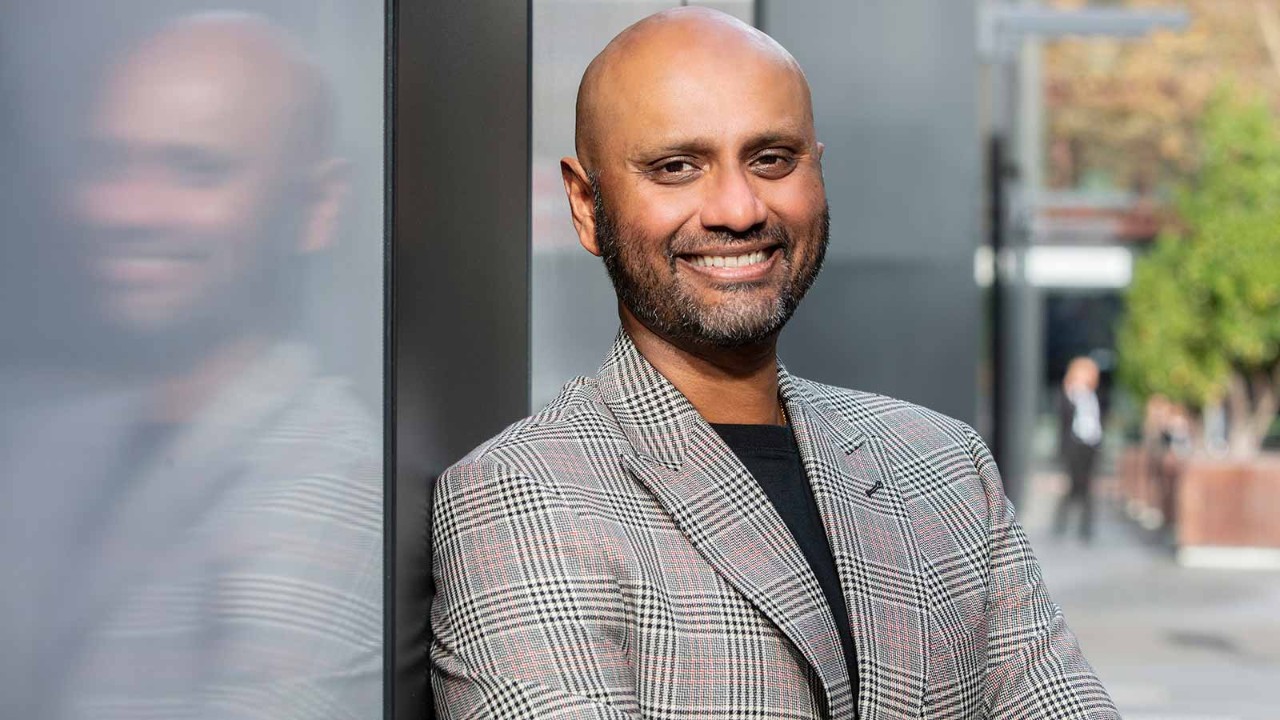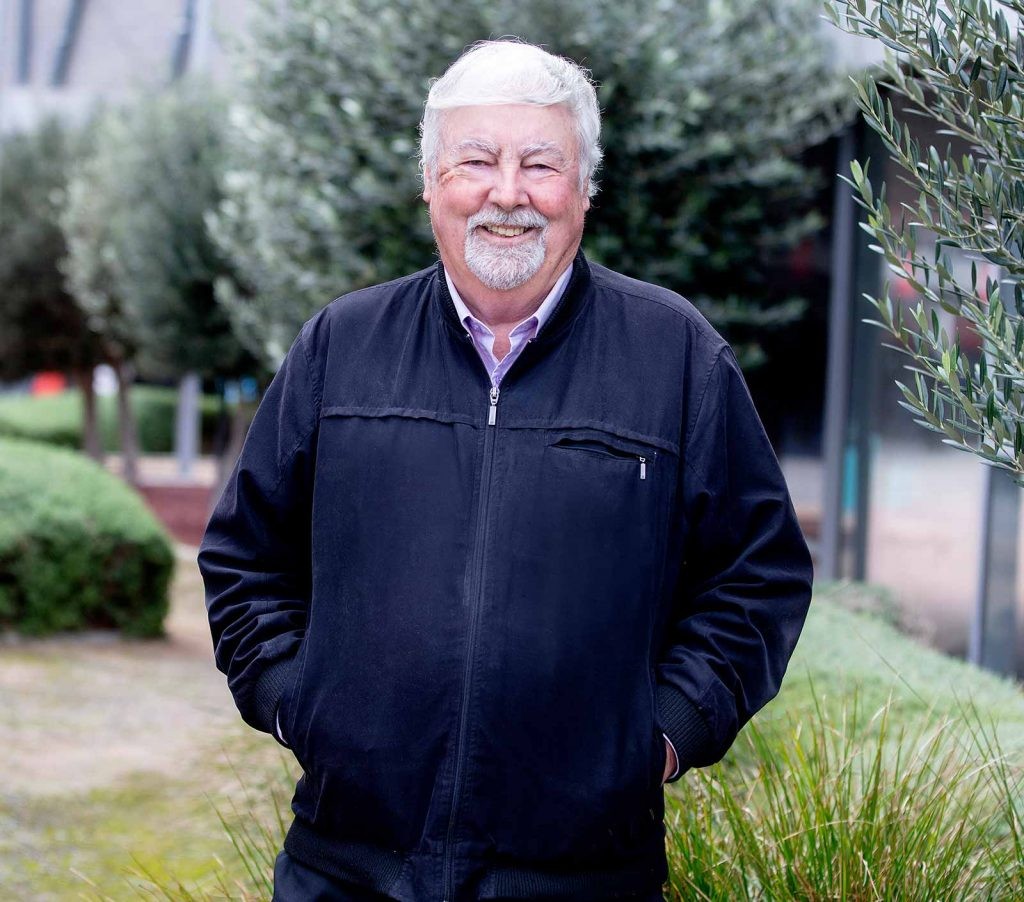
The upward trajectory of Karl Mohan’s career has a pleasing circularity to it. After completing his ACCA Qualification in Malaysia in 1997, he joined Deloitte’s consulting practice and advised internet-based companies. It was a period of massive growth in the adoption of the internet, when the business opportunities and pace of change felt exponential prior to the dotcom bust of 2000.
'I was really lucky to witness the growth of the internet and I enjoyed providing an advisory service,' he says. 'I now see the same trends occurring 20 years later with the emergence of cryptocurrencies, and I feel that this is my chance to help shape the conversation. Back then, I didn’t have a seat at the table.'
'With greater regulatory clarity comes increased innovation, and I believe we will see that for the crypto industry'
CV
2021
General manager APAC, Crypto.com, Melbourne, Australia
2019
Advisory board member, RedGrid, Melbourne
2019
General manager, Australia and New Zealand, Wirecard, Melbourne
2015
Head of transaction banking, e-commerce and advisory, then head of product, partnerships and growth, National Australia Bank, Melbourne
Consultative approach
As the general manager of the Asia-Pacific division of cryptocurrency exchange app Crypto.com, which has 50 million users and 4,000 employees, Mohan oversees and drives product launches, market expansion, financial management within the business and overall brand development.
He also works with regulators such as the Australian Securities and Investments Commission (ASIC) and the Monetary Authority of Singapore.
'In Australia, the regulators and the government are willing to engage with participants like us to help them formulate their thinking,' he says. 'Rather than it being a top-down approach, it's very consultative.'
Mohan describes Australia’s regulatory framework as clear and workable. Across the Asia-Pacific region, Singapore, New Zealand and Indonesia also have regulation that fosters growth and innovation.
Enabling innovation
Australian lawmakers recognise crypto as a technology in its own right, just as the internet was. This is an approach that Mohan wholeheartedly endorses.
'With the internet, the regulator came in and said, "If you perpetuate a scam like phishing through email, that is a crime." It didn't stop innovation – it actually enabled the innovation to flourish. With greater regulatory clarity comes increased innovation, and I believe we will see that for the crypto industry just as we did for the internet.'
'When it comes to innovation and development, fintechs are moving much faster than the banks'
To Mohan, the involvement of regulators is yet another sign that crypto has turned mainstream, as is the increasing interest from large investment firms like JP Morgan and Goldman Sachs.
The sheer number of people buying and selling crypto cannot be ignored. In the past year alone, Crypto.com has grown from 10 million users to 50 million, representing a five-fold increase. Since crypto's emergence in 2009, it has attracted an estimated 300 million users, with 18,000 companies accepting cryptocurrencies as payment.
From banks to crypto
Mohan spent several years at National Australia Bank (NAB), where he was head of product, partnership and growth as well as head of transaction banking, e-commerce and advisory. When he branched out into consulting in 2021, he was quickly snapped up by Crypto.com after consulting for them.
'I was drawn to the challenge. When it comes to innovation and development, fintechs are moving much faster than the banks, so it provided me with an opportunity to learn and grow,' he says.
'Banks are not going anywhere; in fact, they are adapting'

The ‘fail-fast’ concept adopted by fintechs enables them to launch products far more quickly than banks. 'Fintechs have a bit of an unfair competitive advantage because the kind of scrutiny a bank faces is different,' says Mohan. 'The majority of banks have anywhere between three and five million customers, so if a product fails, the consequences are dire.'
Nonetheless, he sees banks largely keeping pace with the changing consumer market. 'Banks are still the pillars of modern economy – at least in Australia. They are not going anywhere; in fact, they are adapting,' Mohan says. 'There have been significant investments into fintechs and a lot of their innovations are being adopted by banks.'
Compliance focus
Mohan was drawn to Crypto.com specifically because it is 'unashamedly focused on compliance and information security'.
For a start, it is an organisation with headquarters in highly-regulated Singapore. By contrast, a sizeable number of crypto companies are in locations known for weak regulatory frameworks. Often, the physical location of individual team members cannot be pinpointed.
Crypto.com is certified against some of the industry's most stringent standards and is independently audited. Its Crypto.com Visa card adheres to the robust standards and rules set by Visa. The sharp focus on information security is part of a deliberate strategy to drive up trust in cryptocurrency among the general public.
'We see ourselves as the Amazon of the crypto world,' says Mohan. 'If you think of something that you would like to do in crypto, you'll be able to go to Crypto.com and do it – whether it's buying, trading or investing with cryptocurrencies, of which we have about 300 available.'
'We see ourselves as the Amazon of the crypto world'
Crypto.com
2016
Year Crypto.com was founded
50 million
Number of customers
90
Number of countries where Crypto.com app is used
4,000
Number of employees
Sharing power
Mohan's myriad experience as a financial services executive leading innovative organisations like Crypto.com is down to smart career choices and a thirst for challenge, but he notes that his accounting background has been key in understanding the intricacies of data and finance within a business. 'It has also provided a broad understanding of how businesses operate, how decisions need to be made with financial implications in mind and how to build out and support strategic business objectives,' he adds.
Throughout his career, Mohan has made a practice of dedicating a portion of his time to projects that further social progress. Since 2018, he has been on the advisory board of RedGrid, an energy startup. He was immediately excited by its ambition to disrupt the energy sector and deliver more equitable access to power distribution.
'While the telephone has evolved from the days of Alexander Graham Bell to the iPhone of today, grid power distribution has stayed the same since the days of Thomas Edison,' Mohan says. 'RedGrid is disrupting the sector by creating micro-grids that run on software and by using a power-sharing model.'
Participants are incentivised to share power through a system reminiscent of a loyalty card programme, with credits redeemed for future power consumption. RedGrid is also involved in supplying more affordable power in new rent-to-buy housing developments in Melbourne, Australia, as well as running social impact projects in Haiti and Bangladesh, where villages are being electrified with solar power or the incentivising system. The aim is to expand the project to other developing nations.
Mohan also loves the intellectual challenge of walking into a completely new environment. 'I didn't know anything about the energy sector and being involved with RedGrid has really challenged my thinking,' he says.
'Sometimes you get caught in "groupthink". I'd been in fintech for years, and over time you hear the same ideas. RedGrid was something completely different. It has helped me shape a different way of thinking.'
The overarching ambition, says Mohan, is to support the lives of individuals through innovation. 'Whether it is the goal of incorporating cryptocurrency into every wallet or improving energy usage, leadership, teamwork and management play an important role in responding to these challenges and reaching these objectives.'



